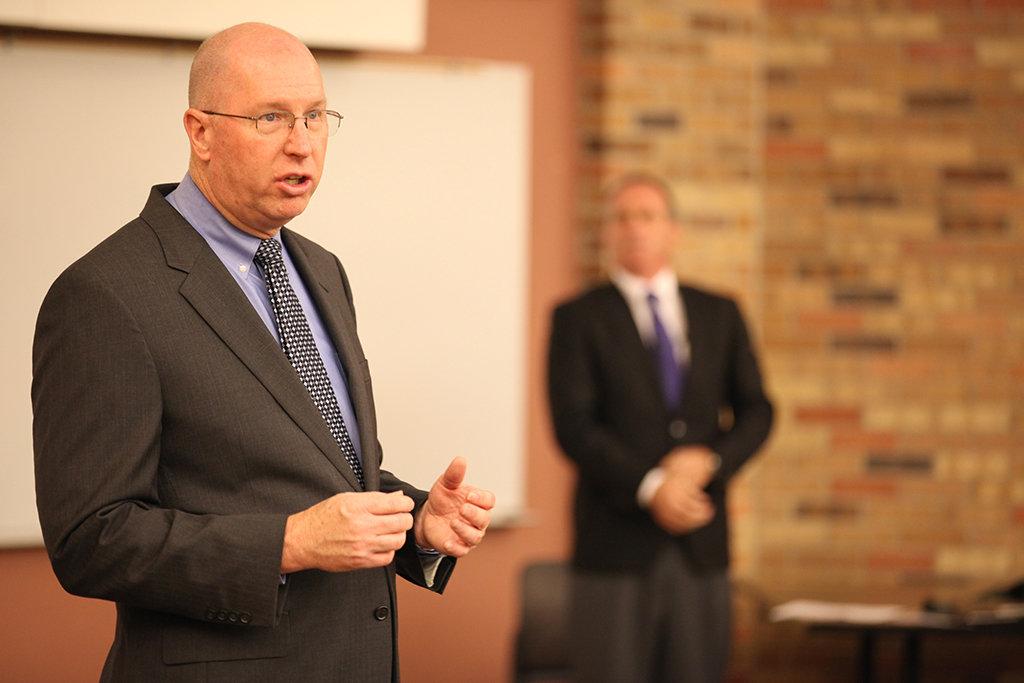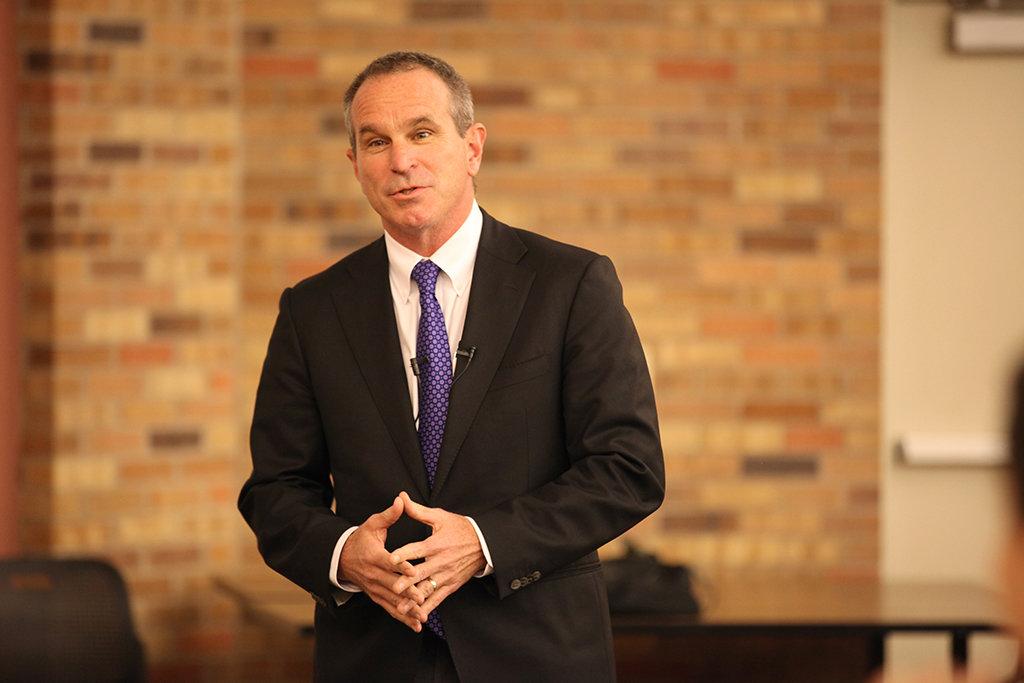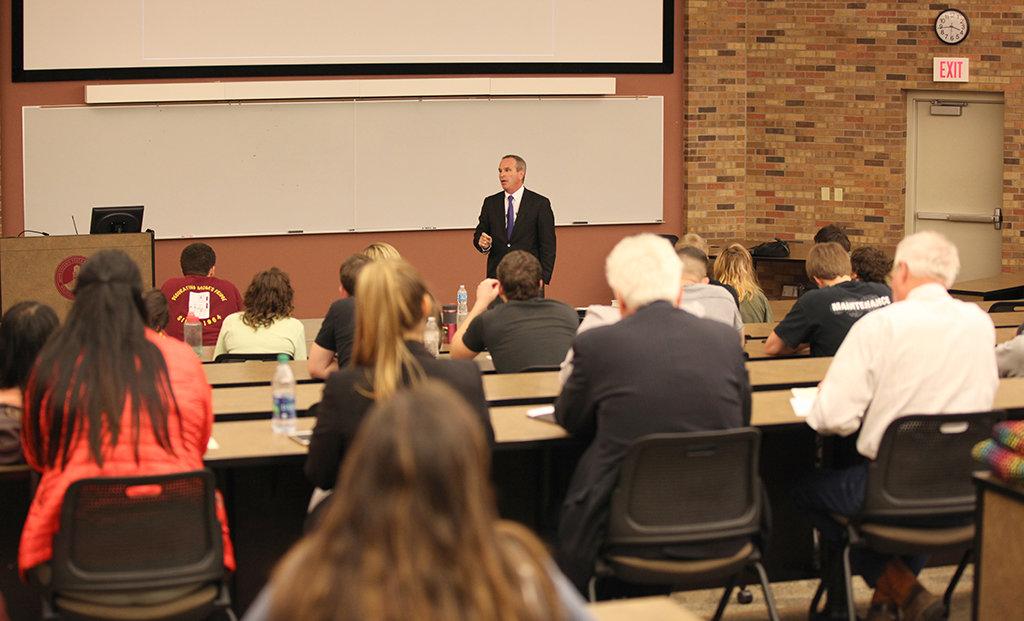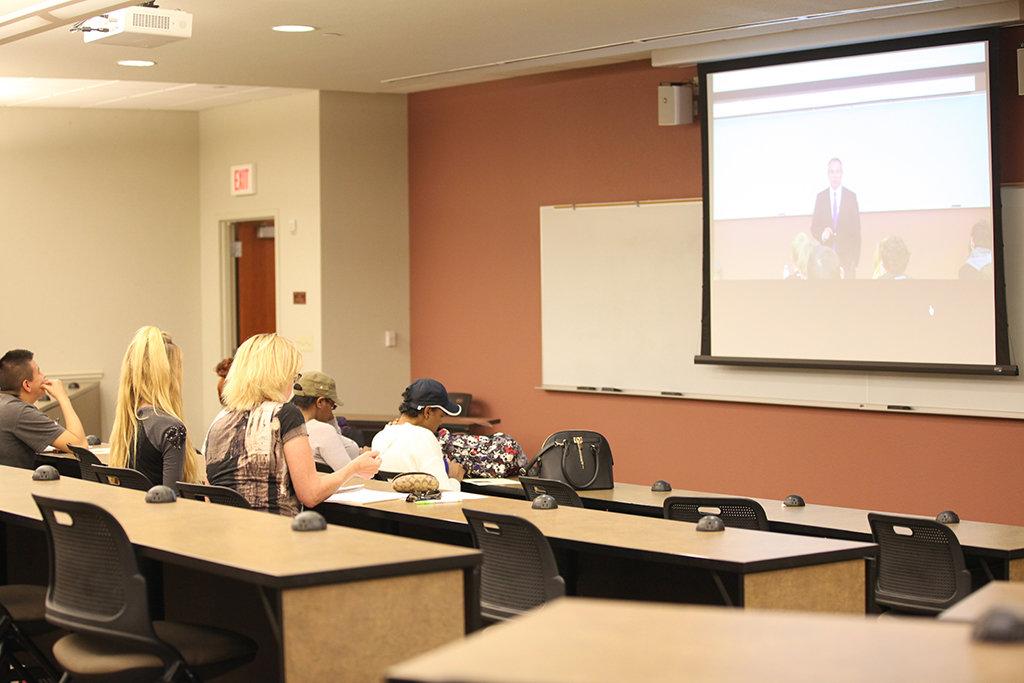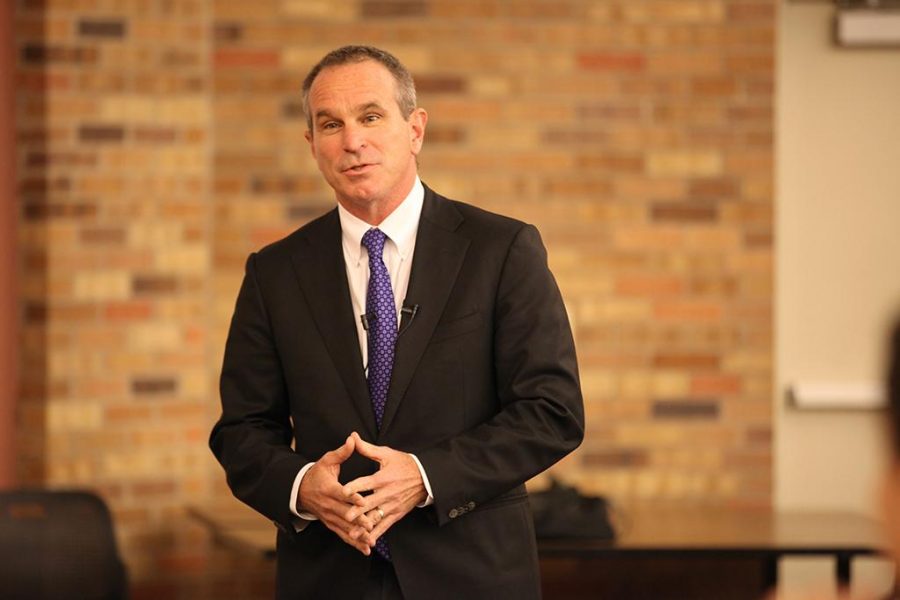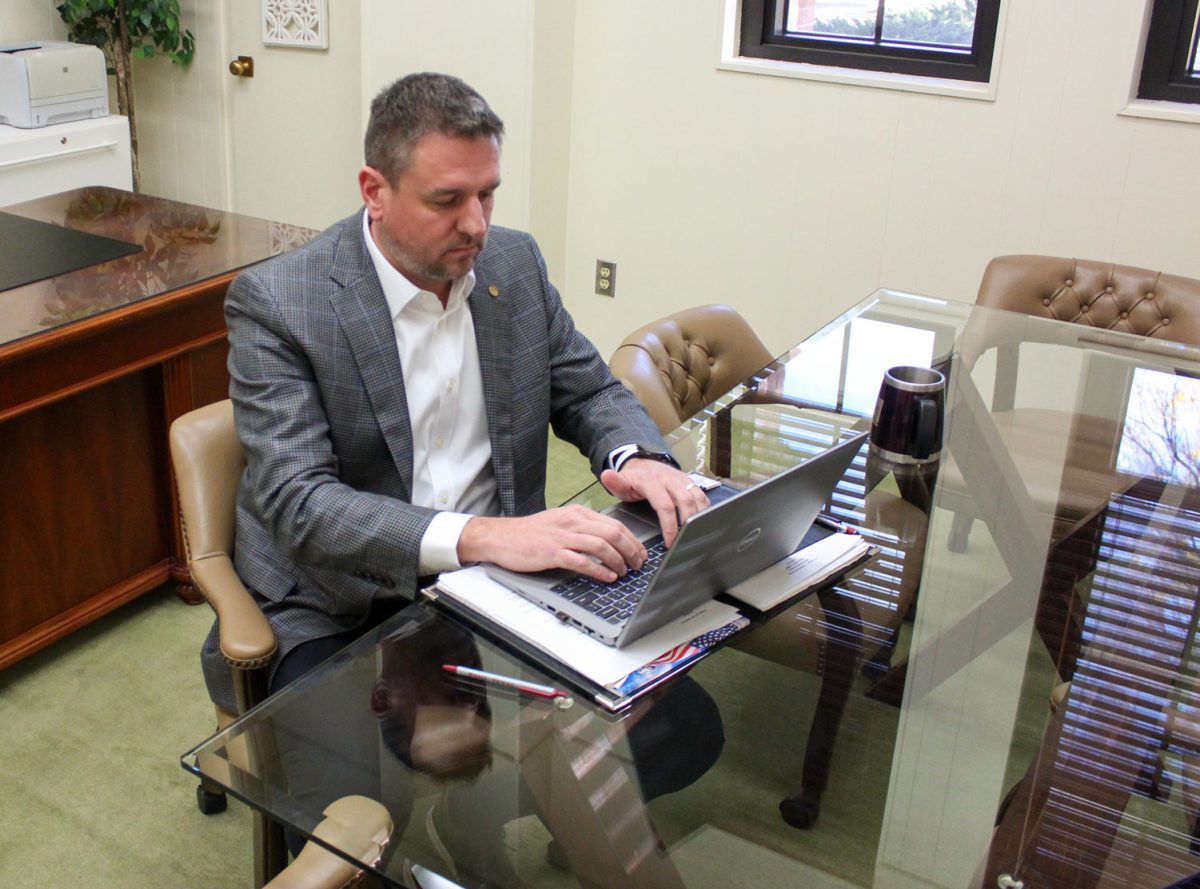The 34th annual Streich Family Lecture Series on Feb. 18 featured the voice of Robert Bryce, professional journalist, on his first visit of the campus. The ensuing hour explored the topic of the energy state in America and the overwhelming role Texas plays in the production of natural gas.
The Streich lecture, for the first time, began at 3:30 p.m. However, students who missed this talk, could attend the talk Bryce gave in Room 101 in Dillard at 7 p.m., as part of a special lecture series that the Dillard College of Business started in the fall semester of 2015. The expense for both lectures was $2,500.
Bryce said he was pleased with the turnout.
“There was a good number here. It’s good speaking to students because I believe it’s my duty to share dimensions and hard facts,” Bryce said. “I want to offer a different perspective other than the one they have been indoctrinated with, that of renewable energy and climate change being the only things discussed in their education.”
Though these topics do play a major role in energy, Bryce said he believes that nuclear energy, despite the fact that it is more expensive, will prove to be more effective.
“Other countries have an increased use of coal because they don’t have the kind of infrastructure that we have,” Bryce said. “They’re burning up more and more to get electricity, because the more electricity you consume, the richer you become.”
In Pakistan and India, countries who have relatively no electricity, leaders have plans to double coal use – adding 45 percent to the already high carbon dioxide emissions.
“Electricity matters,” Bryce said. “It explains the world.”
However, in Texas, the electric demand is practically flat, according to Bryce. His suggestion: more nuclear reactors. But in this situation, time is costly.
“One reactor is taking 43 years to build. In the 1980’s, workers were told to put their tools down. ‘We can run the world on renewable energy,’ that’s a fairy tale,” Bryce said. “We need more nuclear reactors but it’s not happening.”
Bryce said as Texas becomes the most important oil-and-gas producer in the United States, nuclear energy would squash the fear of running out of oil and collapsing in the market.
“Right now, we have too much oil. Our market is oversupplied,” Bryce said.
According to Bryce, since the surge of drilling in 1931 which resulted in the production of a million barrels a day in comparison to limited supply beforehand, Texas has grown to be a leading producer in oil, with an increased production rate equal to that of four combined members of the Organization of the Petroleum Exporting Countries, or OPEC.
“There’s no break on supply. Back when, they had to limit you,” he said.
Amid the serious discussion, Bryce was able to bring some cheerfulness to his speech.
“Now, if you have the three r’s – rigs, rednecks, and rights – you’re set,” he said. “Our rigs are dramatically more efficient than in the past. And if you don’t have skilled workmen, then you’re nowhere. Also, we have mineral rights – something nobody else in the world has.”
At the close of his speech, students asked questions. Students asked about Bryce’s predictions for the oil prices in the future.
“Oil prices could go lower, and could fall at the same rate for years to come,” Bryce said. “We’re in a deflation-area environment and it could be really painful.”
Another highly talked about question was that of the benefits of solar energy.
“Solar energy is soaring. If people in third-world countries that are off-the-grid are given a few solar panels and a battery, it completely changes their life,” he said. “It’s a revelation, almost. But first, efficiency has to grow and cost has to come down.”
Ian Glasgow, accounting junior, was not required to come to the lecture, but he said he came because he had heard of the importance of Bryce.
“I was curious about gas prices and about when they may go up,” Glasgow said. “I didn’t know if it was long term or short term, so it was interesting to hear. It was a very good lecture.”
Jasmin Xu, undeclared freshmen, agreed.
“It was very informative. I liked how the lecture tried to connect to those less knowledgeable,” Xu said. “I respect his passion, but it’s not something that interests me. I would only attend again for extra credits.”
Stambaugh, who alongside James Owen, hosted the Streich lecture, said he felt like he knew Bryce from watching his videos.
“When I first met him, it was like talking to an old friend,” Stambaugh said. “He very artfully took information and tagged it so that people could understand it better.”
Owen, who was unable to attend the lecture because of a hospital visit, said he followed with Bryce’s ideas.
“We as a country have failed to develop petroleum resources,” Owen said. “That’s part of why we picked Bryce to speak, we select speakers on expertise and the presentation is geared to raise interest in business students and to also bring in the community.”
Because the lecture started at 3:30 p.m., many students were unable to attend due to class or work. However, of those 50 who did attend, Bryce said the ‘attention rate’ was at ‘about 80 percent’, and added he would be happy to come again.
“I was very pleased to have been invited, and able to talk about my fundamental disagreement with renewable energy being the only solution to energy crises,” Bryce said. “I would love to come again and speak, if they have me.”
Robert Bryce Lecture
